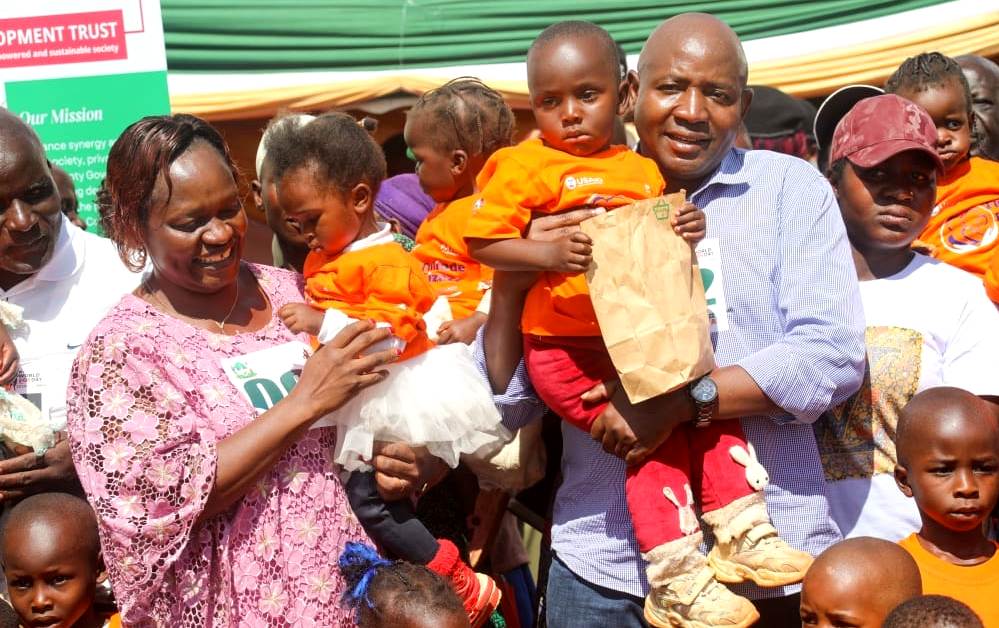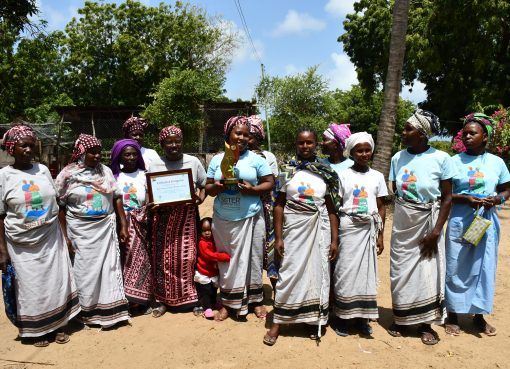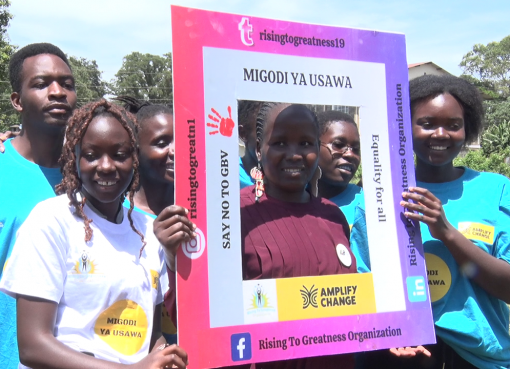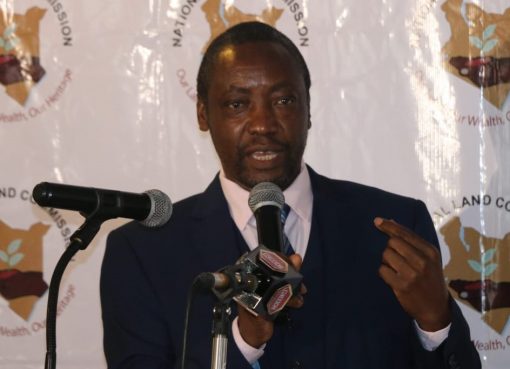In a speech read on his behalf by Deputy Governor Ayub Savula during the World AIDS Day commemoration at Lumakanda grounds in Lugari Sub County, the leaders called on men to be at the forefront in tackling the pandemic.
Governor Barasa said engaging men at the centre stage of combating the pandemic is critical in ending the triple threat of HIV infection, unwanted pregnancies, and sexual and gender-based violence cases among adolescent girls and young women.

“Men are not only key opinion leaders or gatekeepers in our communities, but they also serve as primary decision-makers in homes, communities, and across the nation.
“By positioning men as champions of change, we will harness their influence and leadership to build a more supportive and protective environment for adolescent girls and young men with a goal of reducing HIV infection rates, teenage pregnancies, and sexual and gender-based violence cases,” reads the speech.
The governor appealed to men to get tested and, where necessary, take up treatment, saying the county’s triple threat initiative aims at addressing new HIV infections, unintended pregnancies, and gender-based violence, particularly among adolescent girls.
He said it is regrettable that young people aged 15 to 29, who make up over 60 per cent of new infection cases, with those aged 20 to 24 years being the most vulnerable.
Barasa said Kenya has registered a significant downward trend in new infections, providing an extraordinary opportunity to end HIV/AIDS as a public health threat by the year 2030.
He said, “Since the first recorded case of HIV infection in Kenya in 1984, there has been close to four decades of intervention to reduce its spread and mitigate its effects.
“Kenya has made significant progress in tackling the scourge. HIV prevalence in the general population has declined from 6 percent in 2013 to 3.3 percent in 2023.
“New infections have reduced from about 101,400 in 2013 to 16,752 in 2023, while annual AIDS-related deaths declined by more than half during the same period,” the speech further reads.
The Governor’s spouse, Janet Barasa, said it is regrettable that most infected men opt to remain silent and end up infecting their partners.
She said, “HIV/AIDS is a burden to all of us. Many times people assume it only affects women. This is a false notion. I am urging men—let us work together to curb HIV/AIDS. If you know you are positive, don’t infect your wife or girlfriend.
Remember, your health is your greatest asset; hence, you have to guard it well. So let us spread the word and not the virus. Let us sensitise our people on the importance of prevention and helping those who are infected.”
Mrs. Barasa said the youth are the country’s future, and hence if they are infected the most, the country’s future is infected.
She appealed to the national government and county governments to ensure Kenyans have access to HIV prevention and treatment services, live in an environment that is stigma-free, invest in workplace education and support initiatives for employees living with HIV/AIDS, and amplify the voices of those affected and those who are working towards societal change.
Kakamega County Executive for Health Benard Wesonga disclosed that the county has 51,000 persons living with HIV and added 50,000 are on retroviral drugs.
He appealed to residents to take advantage of the free testing available in all the county health facilities to know their status.
“As per today’s theme, each individual is supposed to know their status. That is your right. And if you are married, your partner also has a right to know your status,” Wesonga said.
Health Chief Officer David Alila said Kakamega County, which has an approximate population of 1.8 million people, contributes 1.8 per cent of the total number of persons living with HIV in Kenya, while cases of new infections stand at 2.7 per cent.
Kenya National Union of Teachers, Lugari branch Chairman, Godfrey Muleri, said HIV is real, and it is a major stress in workplaces.
“Teachers have not been left out. They are also affected. In a school setup we have learners who are affected, we have teachers who are affected, and we also have parents who are affected.
“All they need is support, so that we have a workplace that is healthy and productive,” Muleri said.
By Melechezedeck Ejakait





